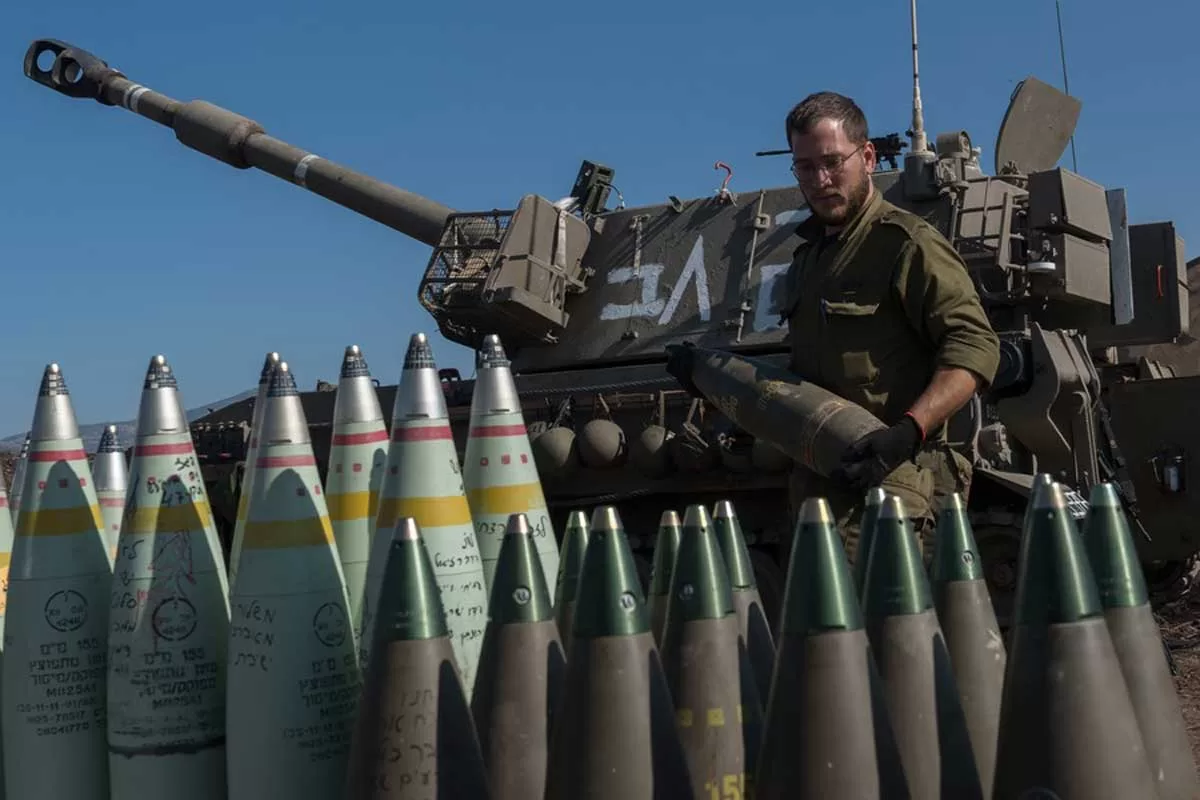Rooted in a historical context, the conflict’s longevity underscores the need for a comprehensive peace agreement and the challenge of achieving it amid hardened stances. This analysis will focus on several key aspects and offer insights into the conflict, Israel’s objectives, the challenges it faces, and the regional implications.
1. Expansive Israeli Goals: The ongoing situation alludes that Israel’s objectives in the current war may be too expansive to achieve. Israeli Prime Minister Benjamin Netanyahu’s promise to “unleash fury” and calls for a ground incursion indicate a strong stance. However, achieving these goals presents a complex challenge, as it raises questions about the feasibility of eliminating Hamas entirely. Israel’s objectives range from forcing Hamas’s leadership to leave Gaza to potentially eliminating them, which begs the question: What does Israel consider a “successful” outcome in this conflict?
2. The Role of Israeli Hostages: The presence of Israeli hostages held by Hamas is a critical factor in the conflict. As long as these hostages remain in captivity, Israel will face pressure to negotiate their release. The historical precedent of releasing Palestinian prisoners in exchange for Israeli captives, such as the case of Gilad Shalit, highlights the strategic importance of these hostages in the current context.
3. International Mediation: The involvement of Qatar, with U.S. support, in mediating a deal for the release of female Israeli hostages indicates international efforts to de-escalate the conflict. Such mediation efforts are critical in preventing further escalation and loss of life, although it remains uncertain whether they will succeed. Western and Eastern powers ensure peace, prosperity, freedom, and provision of equal human rights on both sides.
4. Humanitarian and Strategic Challenges: There is a dire need to acknowledge the significant challenges Israel faces in a ground incursion aimed at diminishing Hamas’s capabilities. Such an operation would be resource-intensive, costly, and come at a high human cost. It emphasizes the dilemma Israel faces—needing boots on the ground to stop Hamas but also dealing with the financial and human costs of occupation. While, the other side must be buttressed with equal importance.
5. Regional Implications: The conflict has broader regional implications. The solidarity and pro-Palestinian sentiment in the Arab world demonstrate how the issue resonates across the region. The United States and Western nations’ support for Israel has caused international debate, with countries like France, Germany, and the UK expressing solidarity with Israel while acknowledging the legitimate aspirations of the Palestinian people. The conflict also has the potential to disrupt ongoing diplomatic efforts, such as the U.S.-brokered normalization of relations between Israel and Saudi Arabia.
6. Historical Context: The analysis delves into the historical context of the conflict, highlighting how the decades-long hostilities between Israel and Palestine continue to fuel tensions and violence. It underscores the need for a comprehensive peace agreement and the difficulty in achieving one, given the hardline stances held by various parties.
Analysis: The Israel-Hamas conflict stands as a compelling illustration of the multifaceted and deeply entrenched nature of geopolitical crises in the modern world. President Joe Biden’s unequivocal condemnation of Hamas’s actions as “an act of sheer evil” underscores the gravity of the situation, reflecting the dire consequences that continue to unfold. The multifaceted aspects analyzed within this conflict offer profound insights into its intricacies. Israel’s ambitious objectives, the strategic significance of Israeli hostages, international mediation endeavors, and the humanitarian and strategic complexities underscore the delicate balance between achieving security and grappling with human and financial costs. The profound regional implications, exemplified by the resonance of pro-Palestinian sentiment in the Arab world, have far-reaching consequences for diplomatic efforts and the broader geopolitical landscape. Embedded in a historical context, the protracted hostilities between Israel and Palestine pose substantial challenges, rooted in deep-seated stances that impede the path to a comprehensive peace agreement. As this analysis illuminates, the Israel-Hamas conflict underscores the necessity for a nuanced, comprehensive, and unwavering approach to address the underlying complexities and ultimately pave the way towards a sustainable and lasting resolution.
